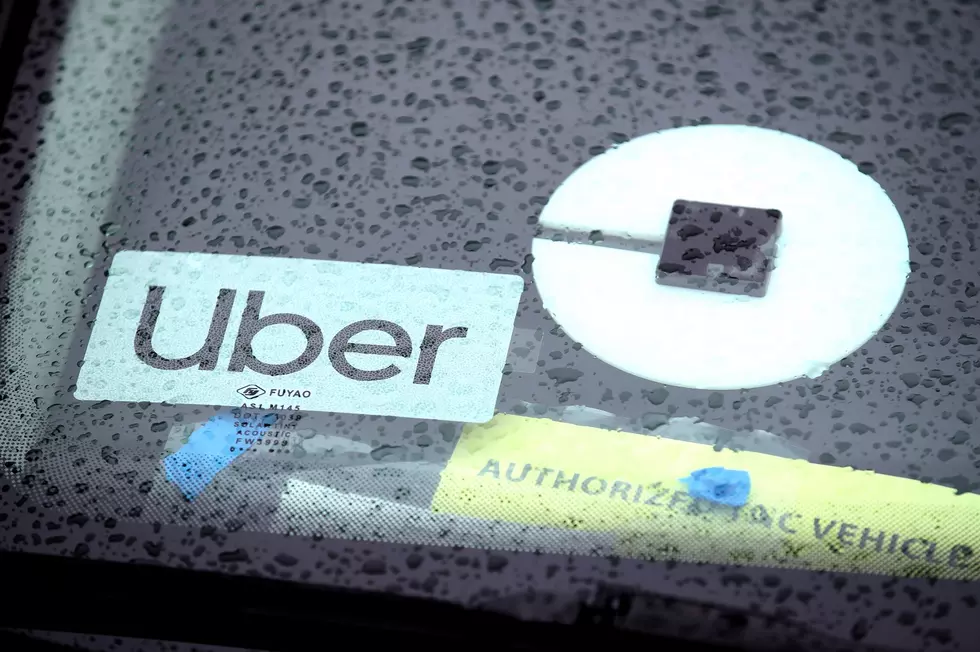
Uber & NJ at Odds Over What to Call Drivers, $650M Taxes Owed
TRENTON — Uber has said it will challenge the results of a state Department of Labor audit that could leave the ride-share company on the hook for millions in unpaid unemployment and disability taxes.
"We are challenging this preliminary but incorrect determination, because drivers are independent contractors in New Jersey and elsewhere,” an Uber spokeswoman said.
State Labor Department officials said Thursday they cannot talk about specific cases, but shared a written statement from the commissioner on the general issue of misclassification in the workforce.
“Over the past year alone, misclassification has cost New Jersey businesses $300 more per employee because of employers not properly funding the Unemployment Insurance Trust Fund. Our 244,000 employers who play by the rules should not have to give a free ride to those who don’t," state Labor Commissioner Robert Asaro-Angelo said.
“Additionally, employees who are wrongly classified as independent contractors in effect pay double FICA taxes because they pay both their own and the portion that their employer would have paid if they were properly classified. When independent contractors file for unemployment or disability insurance, their benefits are paid by taxpayers because their employer didn’t contribute. This defiance of the law puts honest business owners at an unfair disadvantage."
Bloomberg Law reported that documents obtained through its own open public records request showed the state Labor Department "has been after Uber for unpaid employment taxes for at least four years," for unpaid taxes and penalties collectively amounting to nearly $650 million.
"Worker classification is important because it determines if an employer must withhold income taxes and pay Social Security, Medicare taxes and unemployment tax on wages paid to an employee," according to the Internal Revenue Service (IRS) on its website. The IRS notes earnings of a person working as an independent contractor are subject to self-employment tax.
State officials said the Labor Department is required by law to randomly audit 1% of New Jersey businesses each year, while an investigation also could begin based on a "claim filed by a misclassified worker (for unemployment or disability benefits, for example)" or "a complaint against an employer for a work rights violation, such as not receiving overtime pay."
News of the enforcement action prompted a statement from the National Employment Law Project.
"Uber's misclassification of drivers harms workers stripped of their rights and benefits -- but it also hurts state coffers," the project's Work Structures program director, Rebecca Smith said.
"For too long, Uber has skipped out on paying its fair share. Now, New Jersey is holding Uber accountable and telling the company to pay up hundreds of millions in disability and unemployment taxes and to treat its workers as the employees they are. Other states should follow New Jersey's example."
The National Employment Law Project is a non-partisan, not-for-profit organization that conducts research and advocates on issues affecting low-wage and unemployed workers.
“For those who say properly enforcing our unemployment laws will stifle worker flexibility, let’s be clear: there is no reason temporary, or on-demand workers can’t be treated like other employees who work flexible hours for short durations,” Asaro-Angelo said.
At the Statehouse on Thursday, Gov. Phil Murphy echoed the commissioner's statement when asked by a reporter, saying misclassification of workers of is an objective or "big theme" for his administration.
At the same press conference, state Attorney General Gurbir Grewal said as is routine, his office is advising the Labor Department on the Uber enforcement action.

More From WPG Talk Radio 95.5 FM










